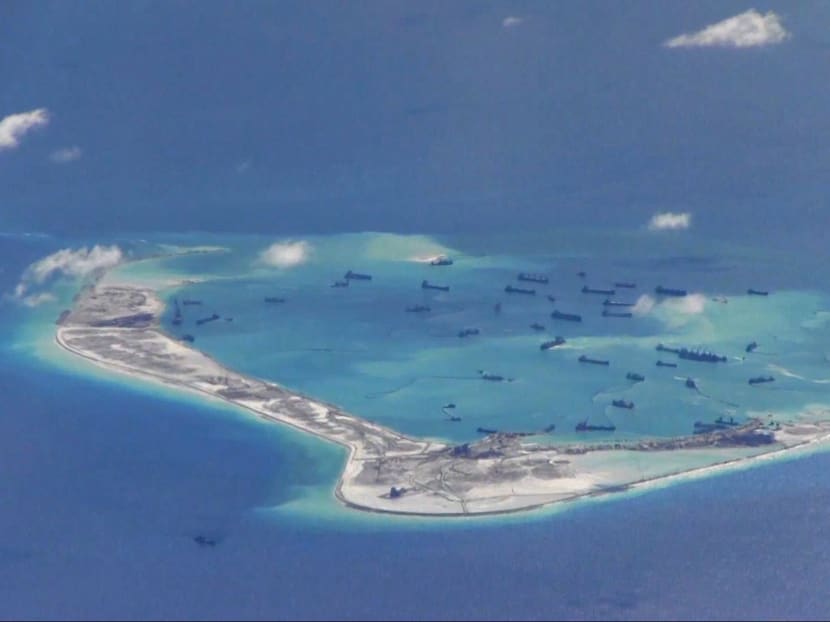Tribunal to rule on China’s sea claims on July 12
THE HAGUE — An international tribunal said on Wednesday it will hand down a ruling on July 12 in a highly-watched case brought by the Philippines challenging China’s claims to most of the South China Sea.

Chinese dredging vessels are purportedly seen in the waters around Mischief Reef in the disputed Spratly Islands in the South China Sea. Photo: Reuters
THE HAGUE — An international tribunal said on Wednesday it will hand down a ruling on July 12 in a highly-watched case brought by the Philippines challenging China’s claims to most of the South China Sea.
The verdict by the Permanent Court of Arbitration (PCA) — the world’s oldest international tribunal for the peaceful resolution of disputes between nations — could further inflame tensions in an already volatile row over the strategic waterway.
In an unusual move, the court announced the date of the ruling ahead of time, saying it had informed the parties that it would issue its ruling at about 11am (local time) on July 12.
The written decision will first be emailed to the parties, and then released to the press and uploaded onto the PCA’s website.
Chinese Foreign Ministry spokesman Hong Lei reiterated the PCA has “no jurisdiction” over the matter and that Manila’s unilateral lodging of the case is against international law.
He said that China would not accept any forced dispute resolution.
Spanning more than three years and nearly 4,000 pages of evidence, the arbitration case in The Hague is extremely complex, and has already drawn anger in Beijing.
The South China Sea, spanning almost 3.5 million sq km, with abundant natural resources and a key shipping lane for international trade, borders on China, the Philippines, Vietnam, Malaysia, Brunei, Singapore and
Indonesia.
Manila is contesting China’s historical claim to about 90 per cent of the maritime territory, with its so-called “nine dash line” stretching deep into the maritime heart of South-east Asia, covering hundreds of disputed islands and reefs, rich fishing grounds and oil and gas deposits.
The Philippines argues that China’s claim violates the United Nations Convention on the Law of the Sea and has restricted its rights to exploit resources and fishing areas within its exclusive economic zone.
The Philippines turned to the court, established in 1899, after 17 years of negotiations with China, saying it had exhausted all political and diplomatic avenues to settle the dispute.
But China refused to participate in the hearings, maintaining the tribunal had no jurisdiction in the matter and had maintained that it would not recognise the ruling.
Tensions have been growing for years in the South China Sea, as Beijing has sought to expand its presence in what is a main maritime link between the Pacific and Indian oceans, giving it enormous trade and military value.
Its shipping lanes connect East Asia with Europe and the Middle East, and over US$5 trillion (S$6.7 trillion) in ship-borne trade passes through the South China Sea annually.
Major unexploited oil and gas deposits are also believed to lie under the seabed.
China has also conducted massive dredging and artificial island-building activities in the Spratlys, dwarfing the scale of reclamation work of other claimants.
In April, the United States launched joint South China Sea patrols with the its key South-east Asian ally the Philippines and amid growing US concerns over the tensions and has consistently called for a diplomatic solution to the standoff.
The US has also warned China against taking “additional provocative actions” following the international court ruling. A senior State Department official voiced scepticism last week at China’s claim that dozens of countries backed its position in the case the Philippines has brought against Beijing, and vowed that Washington would uphold US defence commitments. AGENCIES





